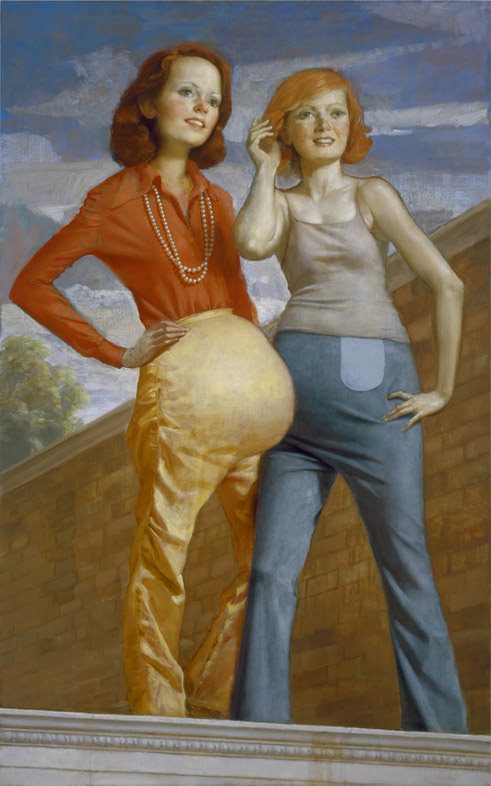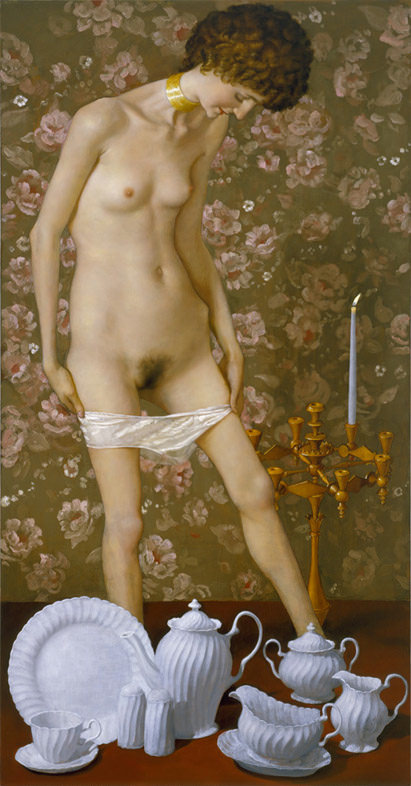Post-Darwinian Experiments in Consciousness
“It just doesn’t make sense,” she said. “I mean, my sisters get pregnant looking at a cologne ad. They get pregnant in pollen season.”
For six months they had been trying to conceive, and still her period was as regular as the tide. She decided to see a doctor. He told her it would be a waste of money, that the fertility counselor would probably recommend treatments linked to uterine cancer. He went into obscure specifics about the effect of fertility drugs on “weak hydrogen bonds” in the DNA molecule. She listened because he was a very intelligent person who knew more than she did about most things, but in the end she arranged an appointment anyway. To her surprise, the fertility counselor told her that drugs were not necessary. Her hormone levels were fine, and her ovarian reserve was well above the baseline for her age.
Though it was an awkward subject to broach, she finally worked up the nerve to ask him to have his semen tested. “No, thanks,” he said.
“Look, I know it’s scary,” she said. “If there’s, you know, something wrong, there’s probably stuff they can do. There are therapies. But sweetie, I want you to know that whatever the problem is, I’m with you. I’m on your team.”
“Oh, good,” he said. “Because here’s what the problem is.” Then he told her that two years before they’d met, he’d gotten a vasectomy.
Hearing this caused many rooms of hurt and anger to open inside her. She demanded to know why he’d had the operation, and more important, why he’d never mentioned it to her.
“Frankly, I don’t know if you’ve really gotten your head around what a remarkable time this is to be a human being,” he said. “Human consciousness has evolved way past the clumsy demands of ‘Do I eat this or fuck this or hit it with a stick?’ Obviously, from a species perspective, we’re doing A-OK. The planet is lethally choked with humanity, the upside of which is that people like you and me don’t have to spend our lives worrying about whether Homo sapiens’ genes are going to endure. Instead, we get to live completely free from the primitive survival mandate to experience life as a post-Darwinian experiment in consciousness.”
She asked him to move out of their apartment immediately. He did, and signed a lease on a place he could afford. He was glad to be free and on his own, living according to his will. But because the new apartment was in a neighborhood full of poor people who frightened him, he spent nearly all of his free hours in the safety of his living room playing a video game called Metal Gear Solid.
In just a few months he’d become so adept at the game that he started to think he might begin a career on the professional gaming circuit. One weekend, he flew to Reno, Nevada, to compete in a Metal Gear Solid tournament whose grand prize was $35,000. The competition was stiffer than he’d anticipated. He came in seventeenth but still finished in the money: a cash award of $475, which covered his entry fee plus $30 to spend on whatever he wished.
The Music Box
After work one evening, Harold’s father goes out with the senior partners and has too much to drink. Coming home, he hits a stop sign with his car. The impact pulls the sign out of the ground, bending the steel post at a right angle so that one bent length of the post juts past the car’s bumper while the other presses against the car’s undercarriage. Harold’s father isn’t in a mood to tussle in the dirt and extract the broken sign, so he eases the car forward, which thrusts the post up through the driver’s seat, killing him.
The man Harold’s mother later marries is not at all like Harold’s dead father—a quiet, fat person with hands as tender and small as a child’s. The new husband, Ian, is tall, loud, red, and fond of the outdoors. One afternoon, Ian takes Harold down to the pond behind the house. There, he teaches Harold the art of frog gigging. Together, they skewer the pond’s entire population of bullfrogs because Ian likes to use their legs for bait, and because their nightly singing spoils his sleep.
When the job is finished, they go back to the house. Harold, who is five, sees his mother go into the bathroom and hears her running a bath, which he supposes is for him. But when he goes to have his bath, he finds the tub already occupied by his mother and Ian. Harold’s mother lies with her back against Ian’s chest, and Harold’s eyes come to rest on Ian’s cock, a purple, coneheaded structure nodding docilely in the gray water near Harold’s mother’s thigh. The cock resembles the elephantine blossoms of the banana tree in the yard, and Harold cannot stop staring at it.
Advertisement
Ian says, rather brusquely, “What’re you looking at, boy, her music box?”
Harold understands that there is danger here. He knows that it would be something of a misdemeanor to admit to looking at his mother’s music box, yet he grasps that it would be even more problematic to explain that, no, as a matter of fact, he was actually looking at Ian’s cock.
After a moment’s calculation, Harold says, “Yep.”
A Recollection
“And we’re going to see who, now?” said the President of the United States. “The Cossacks?”
A look of restrained alarm furrowed the brow of the President’s aide, who was sitting across the briefing table on board Air Force One, bound for the Orient. “Sort of like that,” the aide said. “Only you spell it like…” He withdrew a plump gold pen from his breast pocket and wrote K-A-Z-A-K-H across the upper margin of one of the papers spread before him.
“Oh, right on,” the President said. “I hear you. Gotcha cold.” The aide’s name was Allan MacFarquar. The President called him “Farky.” MacFarquar put the pen back in his pocket and took out a box of Mike and Ike candies, which he liked to snack on as a quick energy boost. Eating as he talked, MacFarquar plowed on, outlining certain delicate matters regarding the refurbishment of the Caspian Pipeline and something about a local custom that involved drinking fermented mare’s milk, but the President wasn’t hearing a word he said. The sight of those Mike and Ikes had called up an old memory, and now the president was lost in it.
The memory was this:
When the President was thirty-eight, his father had grown so tired of his son’s indolence, his alcoholic and venereal excesses, that he decided to stop speaking to him. The President’s father kept up the silent treatment for nearly two years until one evening, after a GOP fundraiser at the Palo Alto Civic Center, when father and son found themselves standing side by side at a trough-style urinal. In order to avoid his father’s gaze, the President turned his face sullenly downward, staring into the brushed-steel sluiceway. What caught his eye was a small red gem of urinal cake, which had been tumbled and abraded into a perfect, fluid-winnowed capsule. It closely resembled a cinnamon Mike and Ike or a Good & Plenty chewy candy. Earlier in the evening, a friendly young woman had introduced the President to “buttery nipple” shooters, which are equal parts butterscotch schnapps and Irish cream. The President had knocked back well over a dozen of these shooters. They had left a sour dairy taste on his tongue and a pain in his temples.
Now, in the bathroom, the President found himself gripped with a powerful urge to retrieve the hypothetical Mike and Ike from the trough and taste it, both to clear the awful sweetness of the buttery nipples from his mouth and to figure out exactly what the hell he was looking at here, a chewable candy or urinal cake?
If his father had not been beside him in the bathroom, the President would have given the red capsule a diagnostic nibbling no doubt about it. Instead, the President trained his urine jet onto the object and silently bullied it over to his father’s side of the trough, implicitly offering it to his silent father’s scrutiny and not insensible to the fact that any gesture made by one’s urine flow would likely be perceived as hostile. The President’s father noted the buffeted capsule almost wistfully, and then, to his son’s hiccupping astonishment, the father broke his longstanding silence with these words: “I admire the force of your stream.”
Since that evening, the President could not look at a box of Mike and Ikes, those tasty little peacemakers, without feeling good about himself, and his father. So while MacFarquar jabbered on about the size and competence of the mobile security detail and the possible disruptive scenarios from Kazakh dissidents, he noticed that the President wasn’t looking at him, but staring dazedly at the box of candy. MacFarquar broke off. ‘Would you, uh, like one, sir?” he asked, proffering the box.
“Don’t mind if I do,” said the President of the United States. “Don’t mind if I do.”
Advertisement
These stories by Wells Tower and paintings by John Currin are drawn from the catalog John Currin: New Paintings, published by Rizzoli and Gagosian Gallery.





